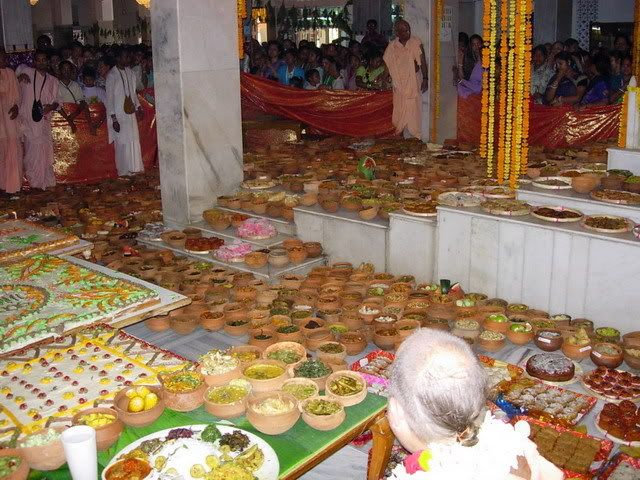perhaps its on purpose. personal affection using a unique signature.
how wise you are draqon!
I never thought of it that way.
perhaps its on purpose. personal affection using a unique signature.
there are INFINITE GODS...
these gods are all parts of ONE GOD..
and this one god is so much beyond understanding that it can only be nothing...
so you can also say that there is NO GOD (everything is illusion/nothing)
all these 3 are true.
the real trinity of nothing: nothing, infinity and one
(0/infinity=1)
There are no Gods. We are all that there is.
according to Hinduism, god is EVERYTHING (at the same time when it's nothing and only 1), so we are also god.
god is just a word. empty word. like any other word. nothing.
There is very little you can say (if anything) is true "according to Hinduism".according to Hinduism...
lol well Indians do love a ritual!
it could be worse - I just ate 6 gulabs from the deity

Indians certainly believe in offering more than one preperationNow I'm hungry!

How do you know the line of the Jews supposedly took the story from the Babylonians? Remember, Sharma (Shem), Charma (Ham), Iapeti (Japheth), and Manu (Noah) all survived the Deluge, so the lines of the Hindus, the Bablyonians, and the Jews all learned the story, and bastardizations of it, from the same group of people, the survivors of the Deluge.
There is very little you can say (if anything) is true "according to Hinduism".
yeah... you can't say "according to christianity" either.
every 2 billion christians interpret the bible differently.
so there is not just one christianity, there are 2 billion.
